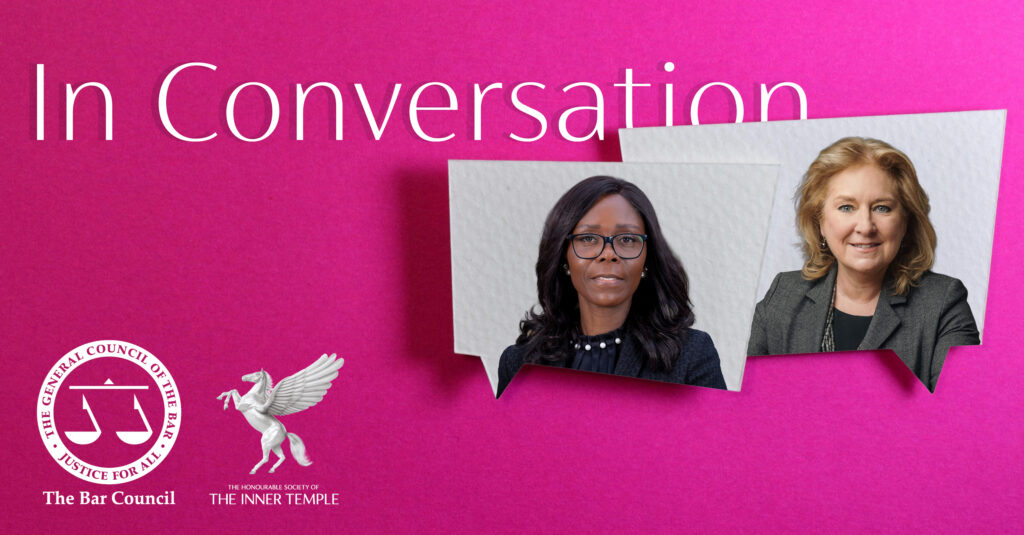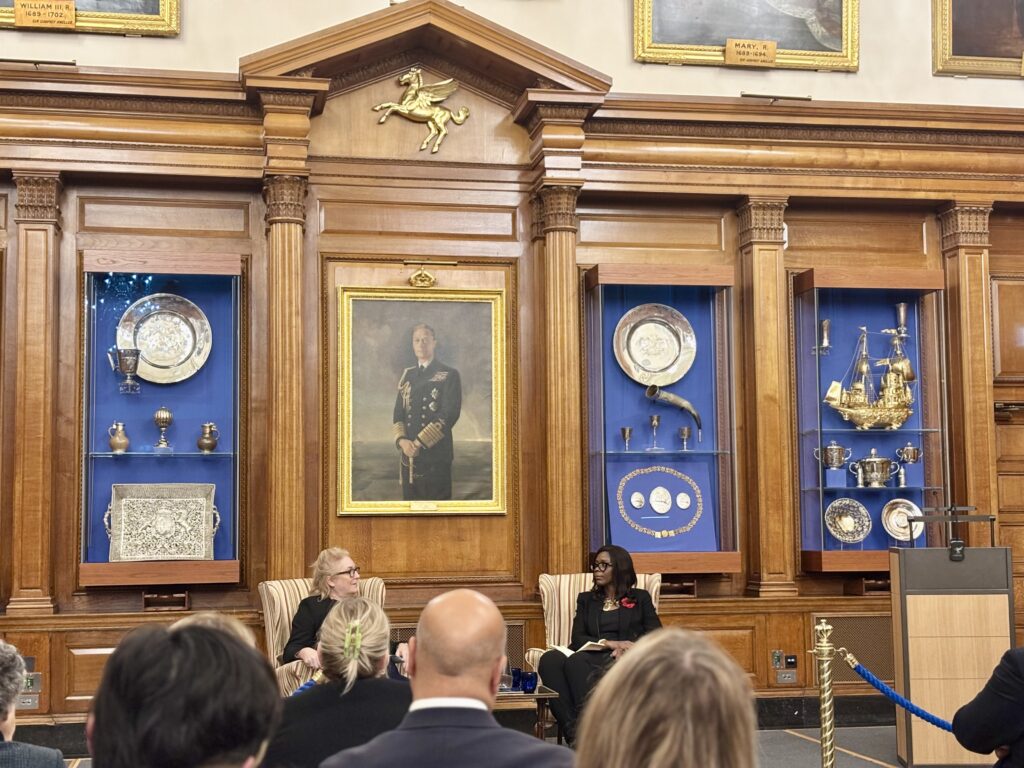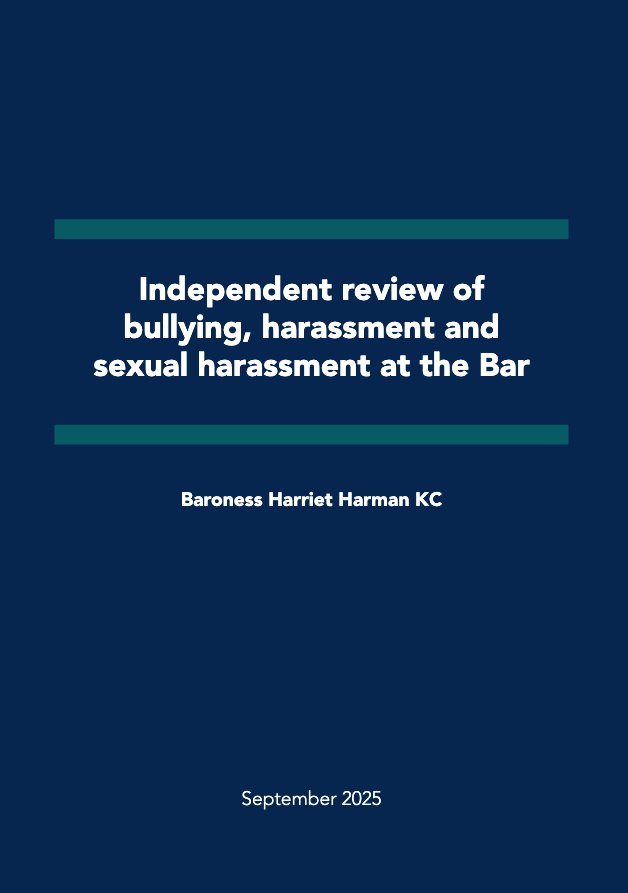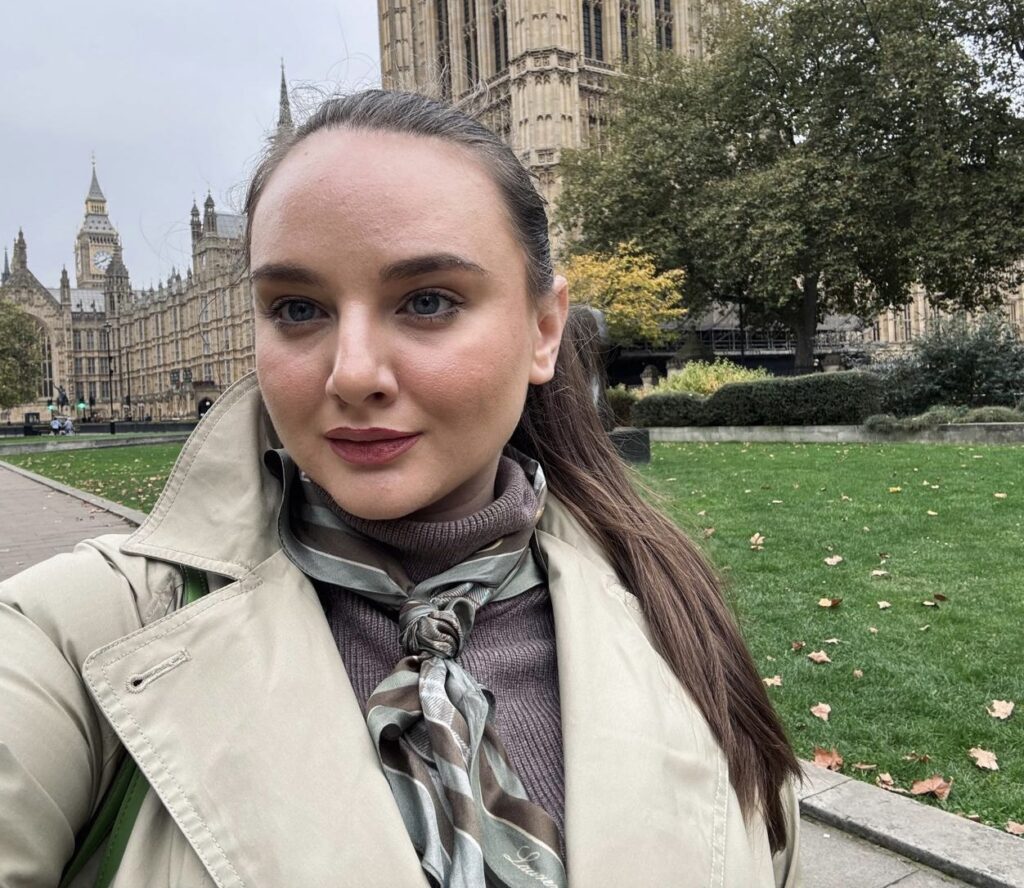In Conversation – The Lady Chief Justice and Chair of the Bar
Listening to Baroness Carr of Walton and Barbara Mills KC, the first female Lady Chief Justice and the first black Chair of the Bar, respectively, felt like sitting through history. Their conversation echoed this sentiment as they reflected on some of the firsts in the legal field, such as the appointment of the first black Lord Chancellor, who replaced the first Muslim woman Lord Chancellor. As Baroness Carr revealed, it was a personal highlight for her to see Shabana Mahmood swear an oath on the Quran.

In one of the grand rooms of the Inner Temple, the spirit of open arms in the legal profession, which celebrates broad opportunities and multiculturalism, particularly in top jobs, has also brought some difficulties alongside political attacks. ‘Something has changed’, Mills pointed out, since the Daily Mail’s front page in November 2016 that printed the photographs of four judges and called them the ‘enemies of the people’ following the High Court ruling in R (Miller) v Secretary of State for Exiting the European Union (2016).
Some of the barristers in the audience also pointed out just how unsafe the profession has become for them and their colleagues, particularly those handling immigration cases. Barristers are readily accessible, and the Cab Rank Rule means that if a barrister is available and competent, they must take the client. This is not always understood by the wider public. Barristers will represent those accused of repellent crimes: paedophiles, terrorists and parents who have hurt their children. For professionals, providing this representation is part of ensuring a fair legal process and upholding the high standards of our justice system. For others, it appears as though legal professionals are doing their job out of political ideology or personal conviction.

These heightened risks are not abstract; they are the realities of this open and accessible profession in the digital age. In many ways, barristers are now finding themselves in the exact same place as MPs have when they began receiving death threats and abuse for voting and expressing their political opinions born out of tensions beyond their control and the extremism of thought and purity of their own opinions. Public debate has always considered the pluralism of opinions a foundation of a healthy society, and we should all have been more alert that once MPs were attacked for performing their public duty, others would be too.
Mills remarked that barristers are so easy to find because they have their public information and photos online. Indeed, why not just bring back the Yellow Pages at this stage? From a safety perspective, having so much information online, including CVs, seems unwise.
Mills continued that a real lowlight for her this year was the attack on the Bar Council’s involvement in the 10,000 Black Interns Scheme by Rupert Lowe MP, a topical issue for Lowe and one he often raises with companies or large organisations to question why opportunities are limited based on the colour of the applicant’s skin. Notwithstanding Lowe’s intention, Mills made it clear that she was on the receiving end of some of the attacks and that critics misunderstood the scheme’s purpose. 2025 also saw some other challenges for the Bar; a cyberattack on the legal aid agency meant that some barristers ended up with very little pay.

Despite all the difficulties, both Mills and Carr were keen to highlight the September publication of the Harman report, which focused on the levels of bullying and sexual harassment in the legal profession. They told of strong support for the report and its 36 recommendations by the profession, although some barristers are worried about the implications of free speech and the impact this will have on barristers expressing their own views and being penalised or prohibited from doing so.[1]
My favourite part of the discussion covered AI, an increasingly interesting area that will most certainly impact the legal profession in a big way. Baroness Carr said that ‘AI should do the laundry, so we can do the ironing.’ I share Baroness Carr’s excitement for AI and its potential role in the legal profession as an assistant of sorts. Baroness Carr reflected on the role AI can have a role in speeding up court work and an overall positive impact for the justice system if used correctly. Although it should be noted that whilst judges use AI, they are given clear guidelines, and one would not be advised to put their name down on a piece of work which they have not fact-checked if they used AI to produce it. Nonetheless, it was refreshing not to hear warnings about using AI and to accept that it is a tool that can have a positive impact on the legal profession and the public.
Overall, it was an interesting discussion between two very notable women, though it came across as unplanned on both sides, with questions and answers that seemed thought of on the spot. It was most certainly a conversation, rather than a discussion. Yet even in its looseness, it captured authenticity and intimacy in a way that these public conversations rarely ever do.

Laura recently left her career in politics, where she worked closely with Members of Parliament, to pursue a career in law. She is currently studying for the Graduate Diploma in Law (GDL) at City St George’s, University of London and is an aspiring barrister.
Before beginning her legal studies, Laura wrote for various publications, including The House Magazine, The Constitution Society, and several policy blogs. Alongside her studies, she will be a Student Advocate with the City School Exclusion Service, representing children in exclusion hearings — an opportunity that combines her commitment to public service with her growing passion for advocacy.
[1] Telegraph Media Group Holdings Ltd, ‘Barrister: Freedom of Speech and the Bar Standards Board’ (The Telegraph, 23 September 2025) https://www.telegraph.co.uk/news/2025/09/23/barrister-freedom-of-speech-bar-standards-board/ accessed 28 October 2025.
